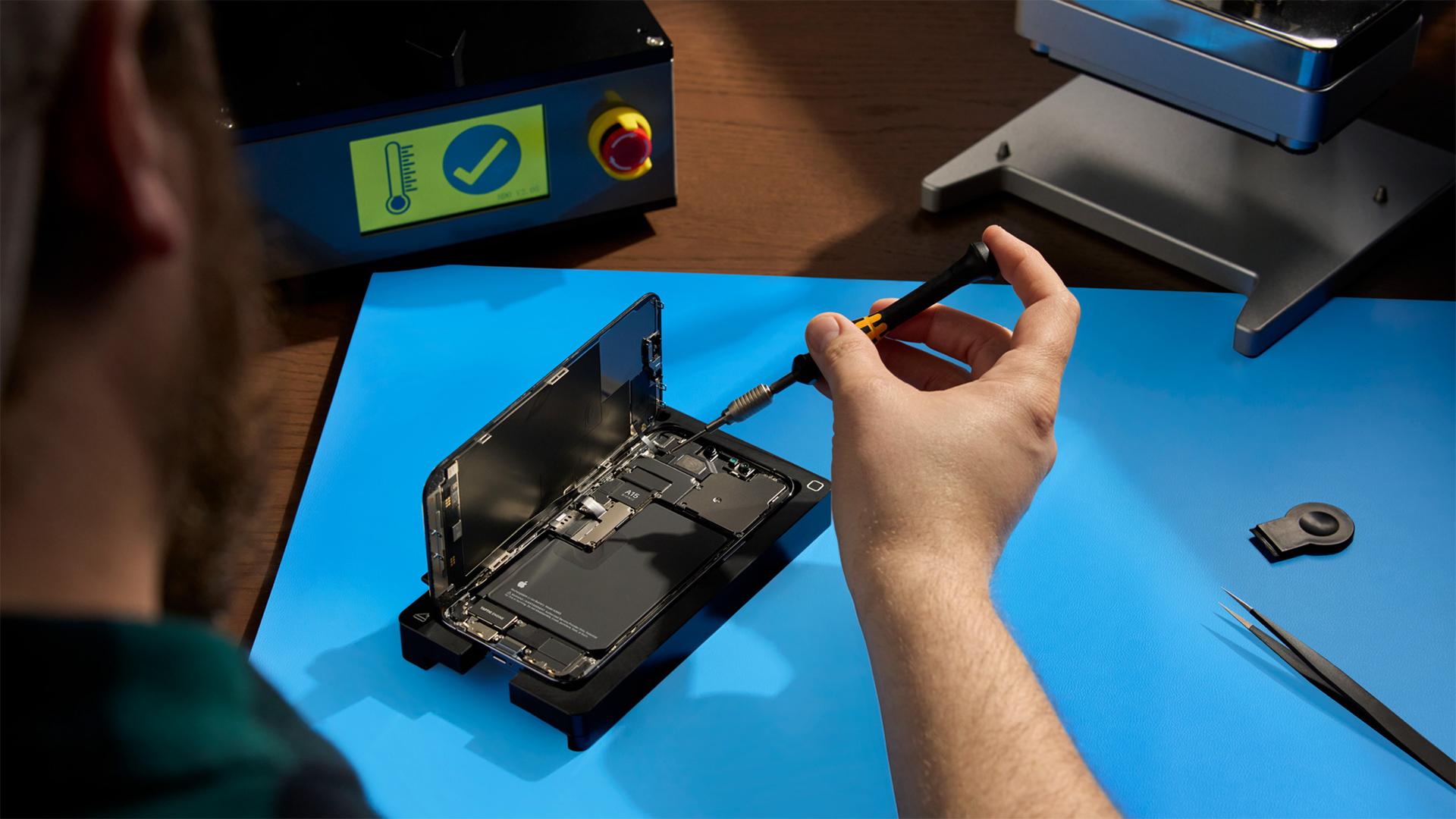Will new EU battery laws really make Apple change the iPhone design?
We look at the proposed guidelines


A story broke recently that could have big implications for Apple and the future of its devices, including the iPhone. It could also affect Samsung, OnePlus, Nothing, Sony, and any other manufacturer that makes the best phones or another kind of portable device that contains a rechargeable battery.
The EU has agreed on a new set of rules that will demand they make it easier for users to replace the batteries in their devices themselves. And, it comes so soon after Apple and its peers already had to commit to USB-C charging.
So, does this mean that, after the iPhone 15, the Cupertino firm will have to go back to the drawing board with its next generation? Or, does it already comply with the forthcoming ruleset with its Self-Service Repair program?
Will Apple be forced to redesign the iPhone?
Well, it does look like, along with every other handset maker, Apple will have to consider the European Union's new legislation when it comes to designing future iPhones - if it wants to continue to sell them in EU member countries, that is. But, it'll have a fair while to do so, as the regulations are likely to set a deadline of 2027 for compliance.
In all likelihood, Apple will be redesigning the iPhone long before then anyway. The current basic design has been in use since the iPhone 12, which is somewhat a record for a company that likes regular refreshes.
Its Self-Service Repair scheme has already started to make it easier for users in several regions (including Europe) to replace parts too - although not yet as easy as the EU will eventually demand.
We might even see Apple comply with the new laws sooner. Not only has it done similar with USB-C adoption - it is switching to the standard for iPhone 15 and all other devices ahead of the 2024 deadline - another EU proposal, the Ecodesign for Smartphones and Tablets act, is likely to pass soon and covers similar legislation.
Get all the latest news, reviews, deals and buying guides on gorgeous tech, home and active products from the T3 experts
Does this mean we'll get an iPhone with a slot-in battery pack?
As The Verge points out, this is expected to set an earlier deadline of 2025 for compliance, although it's not as specific in its demands. It also states that, while there's encouragement for a battery to be swapped without any specialist equipment needed, it is also fine for it to be replaced using "a tool or set of tools that are supplied with the product or spare parts".
Apple's Self-Service Repair system essentially covers this already, or can be easily expanded to do so. Samsung has also launched its own version, which is possibly to get ahead of this specific legislation.
That makes the newer EU vote and agreement all the more important. The additional rules will go further and have a wider reach. For starters, they're not just for smartphones and tablets, but all products that are powered by batteries - including electric vehicles. The use of disposable batteries will also be more tightly governed, so will likely affect toys, remote controls, even wall clocks, too.
The second round of legislation will also be more strict when it comes to longevity.
Again, as pointed out by The Verge, there's a loophole in the Ecodesign laws, which allows manufacturers to circumnavigate battery replacement guidelines with longer-lasting cells. Those that can meet longevity targets won't have to provide swappable alternatives.
That's not something written into the newer EU ruling.
In addition, the supply of specialist tools to replace a battery will only be allowed if there's no extra cost: "A portable battery should be considered to be removable by the end-user when it can be removed with the use of commercially available tools and without requiring the use of specialised tools, unless they are provided free of charge," the new regulation states.
But what does this mean for me?
Ultimately, users will benefit from the changes. Although the new legislation will only really apply to EU member states, no manufacturer will want to make a device specifically for sale in those regions. And, the entire purpose to enforce such change is to make battery-operated technology more sustainable.
Your next phone, for example, could last you a lot longer as you will be able to easily change the rechargeable battery yourself. I wish that was the case in the early 2000s - my Motorola Razr V3 ended up lasting one phone call before needing to be charged again.
The planet will also undoubtedly benefit from not having piles of dead devices ending up in landfill.
There could be a downside too, though - price. Rising costs almost always go hand-in-hand with radical redesigns and the batteries themselves will more than likely need to be manufactured in more expensive ways. Those costs are invariably passed on to the consumer.
However, this might not be as impactful on the higher-end of the market, which already charges a premium for better components and intelligent engineering. It's the lower end that might be hit hardest by the changes, and so, in that sense, Apple and its strong fanbase might not be so worried after all.

Rik is T3’s news editor, which means he looks after the news team and the up-to-the-minute coverage of all the hottest gadgets and products you’ll definitely want to read about. And, with more than 35 years of experience in tech and entertainment journalism, including editing and writing for numerous websites, magazines, and newspapers, he’s always got an eye on the next big thing.
Rik also has extensive knowledge of AV, TV streaming and smart home kit, plus just about everything to do with games since the late 80s. Prior to T3, he spent 13 years at Pocket-lint heading up its news team, and was a TV producer and presenter on such shows as Channel 4's GamesMaster, plus Sky's Games World, Game Over, and Virtual World of Sport.